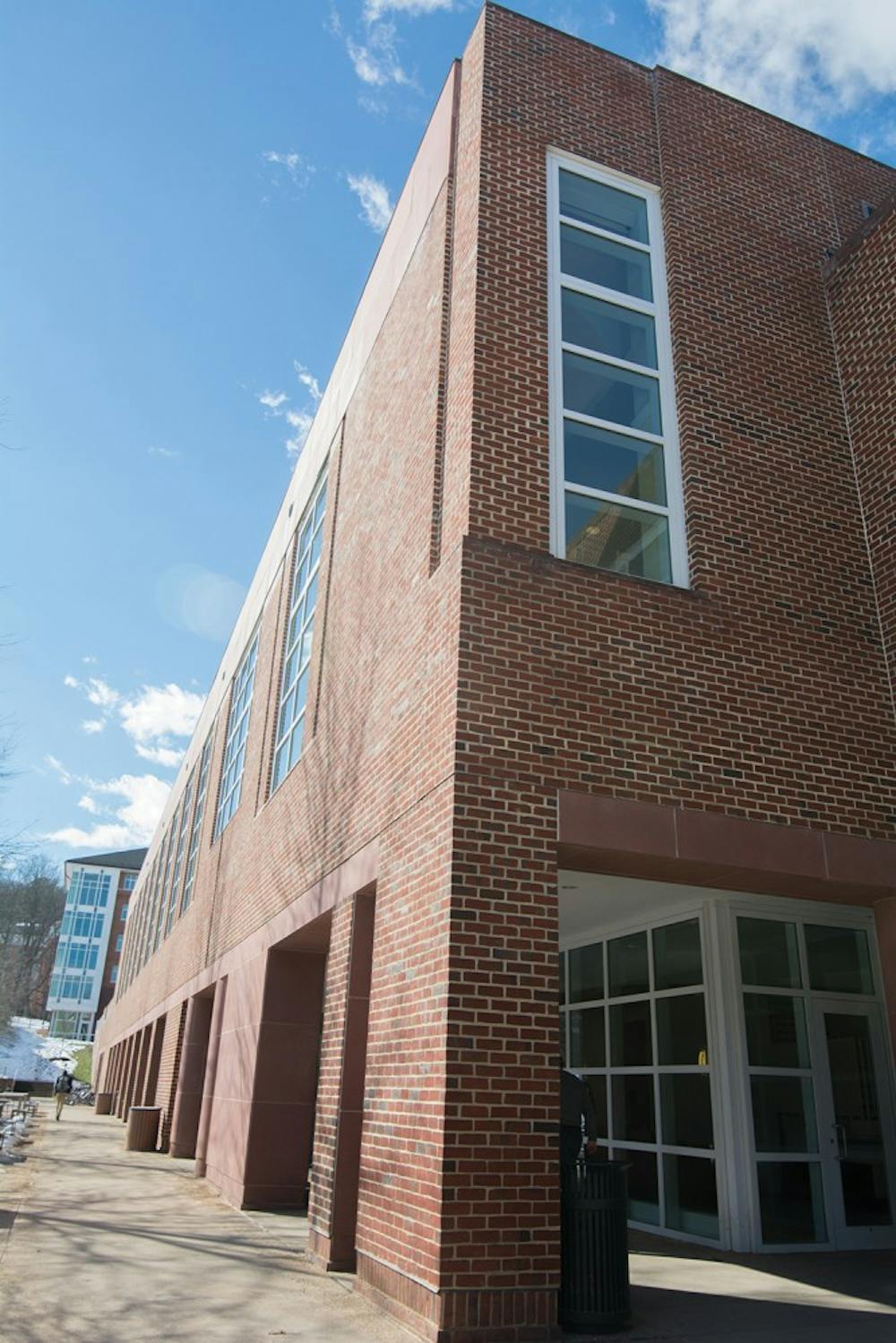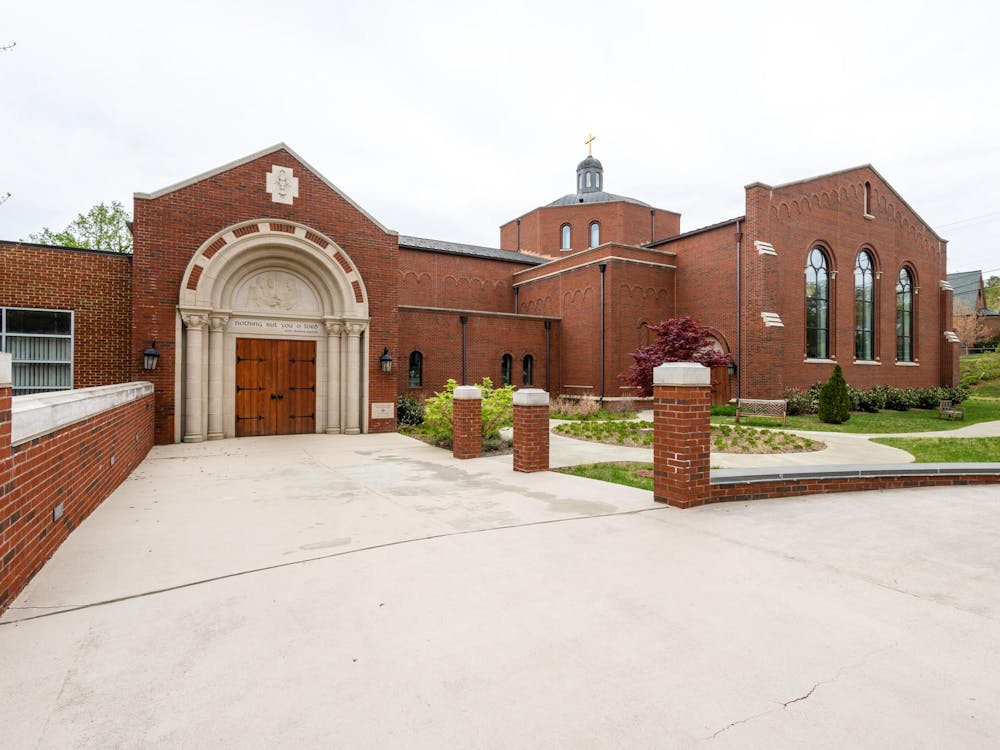A coalition of various student organizations are voicing frustration that the University Transit Service will not offer an Election Day voter shuttle Nov. 8.
In an open letter dated Oct. 3, 13 student-run organizations, including the College Republicans, University Democrats, Black Student Alliance and Queer Student Union said they were “dismayed to learn” UTS would not provide a shuttle.
The letter said on-Grounds organizations have helped register more than 3,000 students to vote since August and “that number will only continue to climb until the October 17th [Virginia voter registration] deadline and does not even include those who were already registered from previous years.”
University Democrats Vice President Brett Curtis, a third-year Curry student, said the University Democrats was informed of UTS’s decision not to offer a dedicated voter shuttle at the end of last week. After learning this, the organization authored the letter and reached out to a number of other groups to join in the effort to establish a voter shuttle.
The letter proposes the University provide a shuttle from the Observatory Hill Dining Hall to University Hall — the polling location for students who live in first-year dorms — from 10 a.m. to 7 p.m. on Election Day.
BSA President Bryanna Miller, a third-year College student, said the University Democrats asked organizations to sign on in order to create broad support for the initiative.
“The Black Student Alliance decided to sign on because in an age of mass disenfranchisement of African-Americans on account of Voter ID Laws, fewer polling places in certain localities and felon voting restrictions, the University should look to decrease as many barriers to voting as possible,” Miller said.
University Deputy Spokesperson Matthew Charles said UTS has no record of running Election Day shuttles for the past four years, including the last presidential election in 2012.
He also said the UTS buses are fully committed to fixed route service during the day.
“UTS does not have the capacity to run any extra services during daytime hours on a weekday,” Charles said in an email statement.
One of the coalition’s primary concerns is that students without access to a car or other form of transportation will be unable to reach their polling location on Election Day, which could be especially problematic for first-year students.
The letter argues a transportation service concentrated near dorms could help to ensure that first-year students have the opportunity to vote.
“We believe a voting shuttle is highly preferable from the critical first-year dorm area so we can concentrate on getting students to the other precincts,” the coalition said in its letter. “A lack of a shuttle to University Hall will negatively affect not only those voting there, but also the thousands of other students who will be voting at other precincts, including Venable Elementary and the Boys Girls Club.”
While the Northline Bus stops at University Hall, the coalition said in its letter that an increase in the number of people utilizing the route could potentially slow service. Supporters of the proposal said this would not only impact students attempting to vote, but also interfere with those going to class or other activities.
“Although the Northline does stop at U-Hall, the ride from first-year areas to U-Hall could take more than 15 minutes,” Miller said. “We all know that the American voting system is a hassle, why not reduce the burden on students who wish to fulfill their civic duty?”
Erich Reimer, political director for the Virginia Law Republicans and a third-year Law student, also voiced support for an organized transportation system.
“Millennial engagement in the political process is vital, and so on election day it makes sense to provide an easier means of facilitating political participation,” Reimer said. “Furthermore, many Law and other graduate students use the Northline and this would likely reduce the capacity burdens and congestion on the buses on Election Day.”
Curtis said although the University Democrats coordinates with Car2Vote — a volunteer organization that drives students to the polls — they do not have the resources to transport the high number of students expected to vote.
“We also want to focus our efforts in specific areas that a dedicated shuttle would not cover, to ensure we are reaching every student,” he said.
Charles said the polls have voter parking identified for those who drive. He also listed a variety of suggestions for students who do not drive or do not have access to a vehicle.
In order to access University Hall, the UTS Northline, the Central Grounds Shuttle, the Green Route and the CAT Route 7 all link to University Hall and run frequently.
To reach Venable Elementary School, the Inner and Outer University loops both serve the Venable neighborhood.
Charles also said UTS is working on the possibility of a virtual UBike station for Election Day that includes potential promotions for free Election Day service. The transit system is also considering the possibility of Zipcar specials, which has occurred in the past.
“University leaders will continue to collaborate with student leaders on the facilitation of student voting and related communication,” Charles said. “We fully support students exercising their civic duty and making the effort to vote.”
Miller said if a shuttle is not arranged by UTS, the next step would be to organize transportation through student groups.
“If the shuttle service isn't provided, I would look to student organizations, particularly Student Council to find funding to host a shuttle service,” Miller said. “If we can fund buses to Foxfield, we should be able to fund buses to go to U-Hall. The BSA will also look into other options to ensure that people can get to the polls on Election Day.”
Curtis said transporting students to polling precincts is a nonpartisan issue that students and the University must work together to resolve.
“Inadequate bus routes or lines make the time to get to the polls significantly longer, and for students who have classes and activities throughout the day, this extra time and effort is very disenfranchising,” Curtis said. “This is such a critical election and every single vote will decide our swing state, contested Congressional House election and other ballot measures.”







